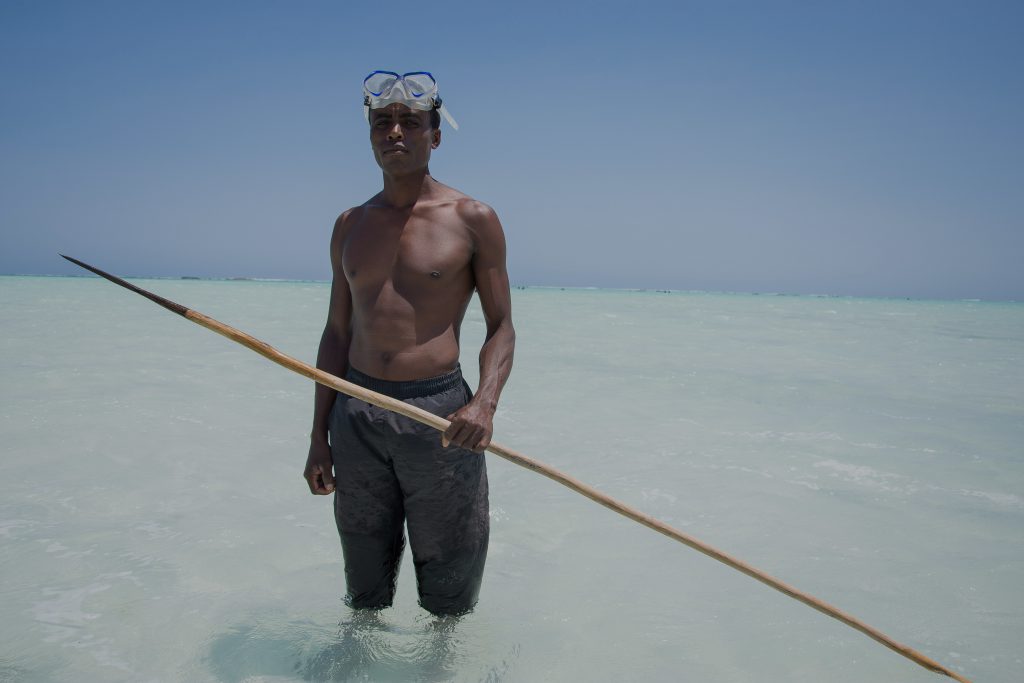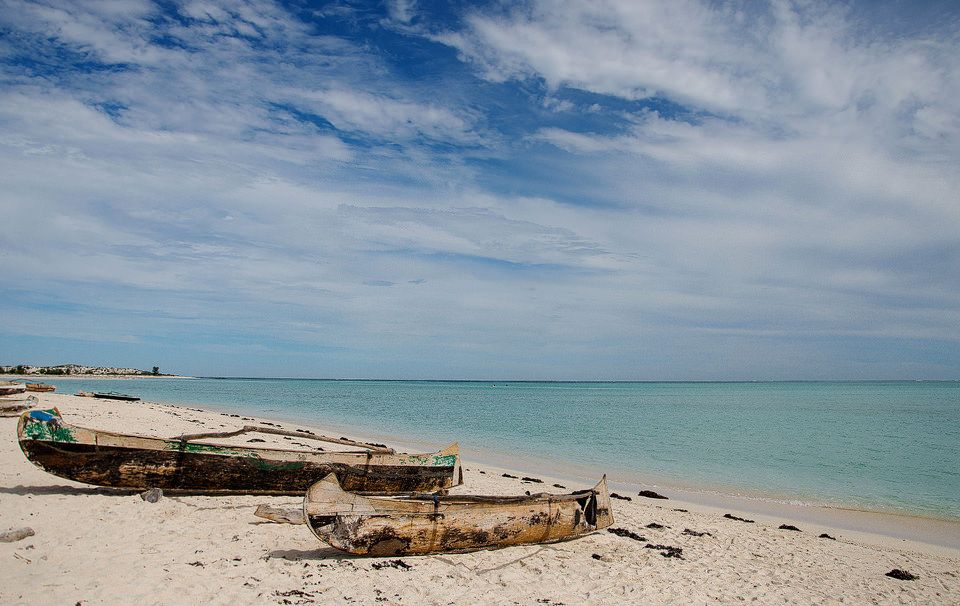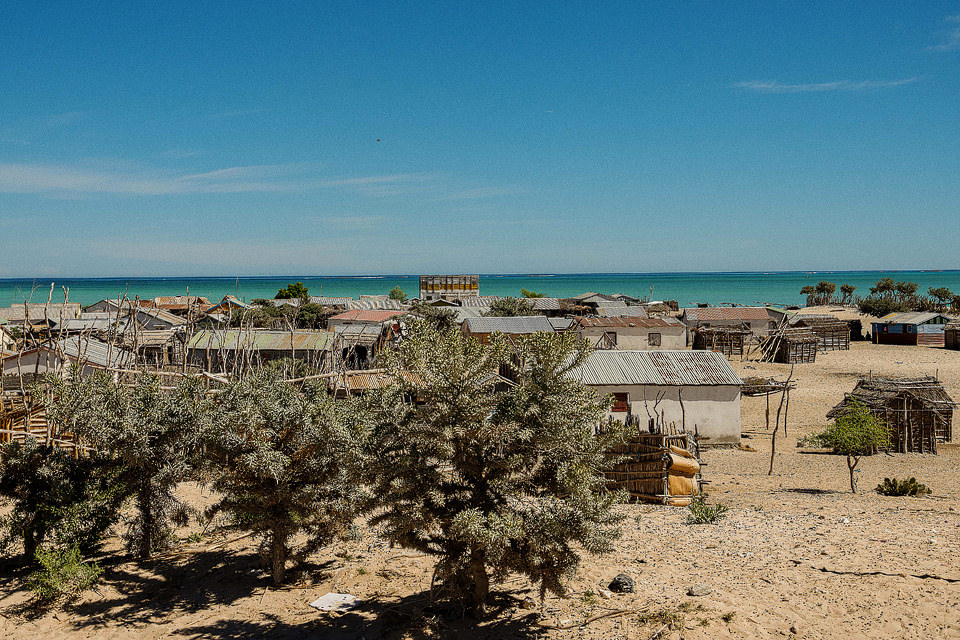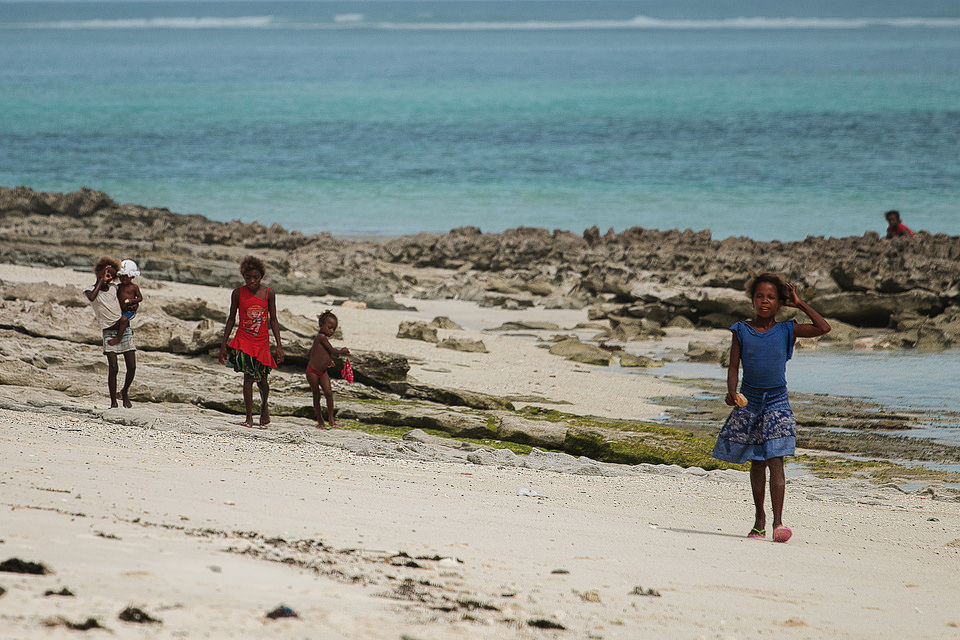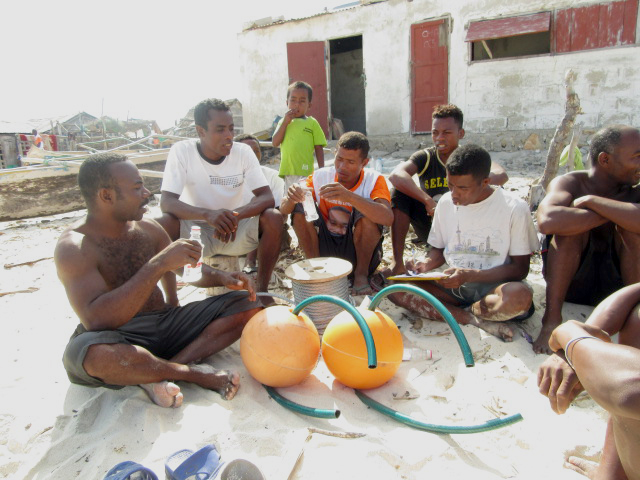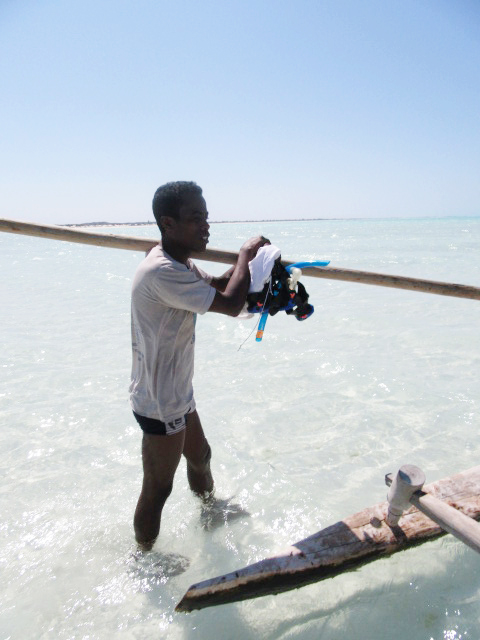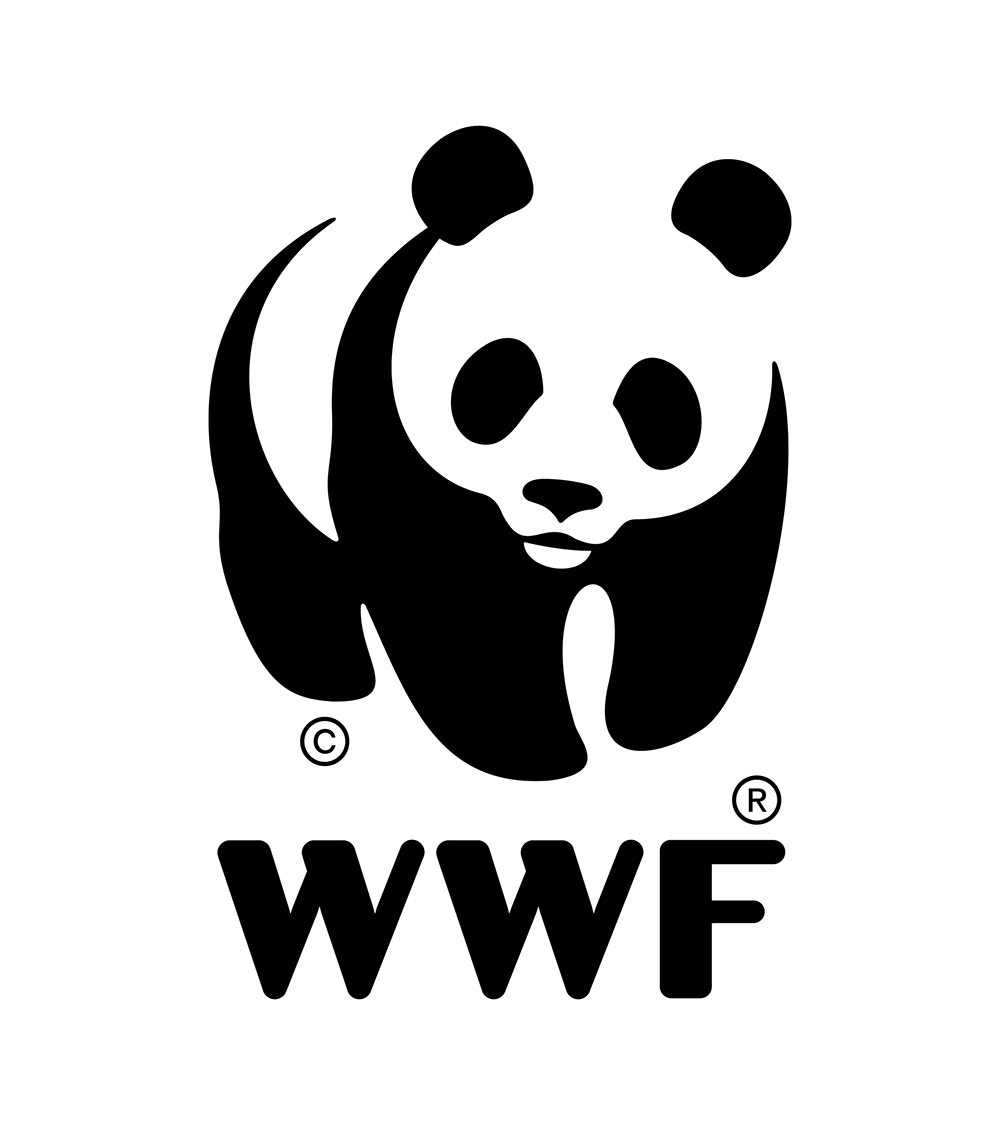Thank you for taking the time to share your story with us today! Can you tell us about your earliest memory of the ocean?
A fisherman’s life used to be easy around here. There were not as many fishermen as there are today. We went out fishing for an hour or two and came back with full pirogues (small, traditional fishing boats). It was easy living with that many fish. We used to go Toliara, our capital, to buy nice clothes and things like Hi-Fi systems and music. We wanted to make the ladies look at us, haha. I still go there today, but for different reasons.
So it sounds like things have changed since then, can you tell us a little bit more about the changes you have witnessed?
It’s not so much about the ocean, I would say it is in the way we use the ocean that has changed. Due to a decrease in rainfall in the inland areas, more and more farmers came to the shores to become fishermen instead. They knew that our reefs were rich and the waters were full of fish. We even used to hold the record of octopus catch per person. Sadly, that all started to change. Too many people were fishing our waters, some of them even fished days and nights on end.
“They know that something is wrong, but they simply don’t understand what it is and why it is happening.”
How do these changes affect you?
Everyone in the village is aware of the fact we catch less and less fish, even though we go fishing every day. If we can’t go fishing for two days, due to bad weather for example, we will not have any food available in the village. The fishermen will start to fight each other, because they think the other one took all the fish for himself. It hurts me to see that they know that something is wrong, but they simply don’t understand what it is. That’s why we have to explain how the reef works and how we can sustain our sea with some improvements in techniques and better management.
And what do you do to shift this change in a positive way?
At first, we didn’t understand why WWF was telling us to stop fishing for juveniles or small fish, or why they were disseminating stone pots into the reefs. But then we noticed that we were catching bigger fish and that the octopuses were using the pots to reproduce. By seeing these positive changes with my own eyes, I realized that we had to change things. I now spend a lot of time advocating the importance of adopting new techniques and improvements of our management, like the pots for the octopuses. This way, we can maintain our marine resources and ecosystems as a community. The LMMA has taught me a lot; me and other presidents share best practices and the things we learn in our community. Since then, one of our octopus reserves now produces 500 kg of octopus a year again. Our village and the surrounding villages can now benefit in a sustainable way, many of them are adopting these octopus reserves too.
“By seeing positive changes with my own eyes, I realized that we had to change things.”
In 2030, what does the ocean look like according to you?
I am not going to hide the fact that we are facing big challenges, for example how to manage the migration from the inlands and the fact that more people are becoming fishermen. You can not stop people from coming. They’re only searching for ways to sustain themselves, because their land no longer produces crops and grains as it did before. But there are rules everyone must follow or there won’t be anything left. If we do not want our reefs and reserves to be empty by 2030, we must play by those rules. It’s everyone’s responsibility and the only way we can all benefit from the ocean.
Thanks for sharing your story Samson, you’re an Ocean Witness now. What do you want to say to other Ocean Witnesses?
It’s not easy. Leading a community-based organization is hard. I was voted to be a president and I did not decline the responsibility either, but there were times I thought about quitting honestly. But as a community we need to learn how to keep our ocean healthy, so I kept going. There will be highs and lows, but if you do not take charge of the future of our oceans yourself, who else will? So take your responsibilities with courage and never think that you are alone. We are all in this together.
And finally, it is important that all fishers manage the ocean properly in order to increase marine resources products. Unless people work together, there won’t be a worthy co-managing.
“So take your responsibilities with courage and never think that you are alone. We are all in this together.”
About Samson
Samson is 32 years old and lives in Beheloke, southern Madagascar, with his wife and his 2 children (a boy and a girl). He came from a large family of fishermen and has 8 siblings. He now works as a fisherman and as a president of the LMMA (the Locally Managed Marine Area) of Beheloke. The LMMA is an international network of natural resource management practitioners, who have joined together to share best practices and to louden their community voices. Together with their communities, they maintain healthy, well-managed and sustainable marine resources and ecosystems.
